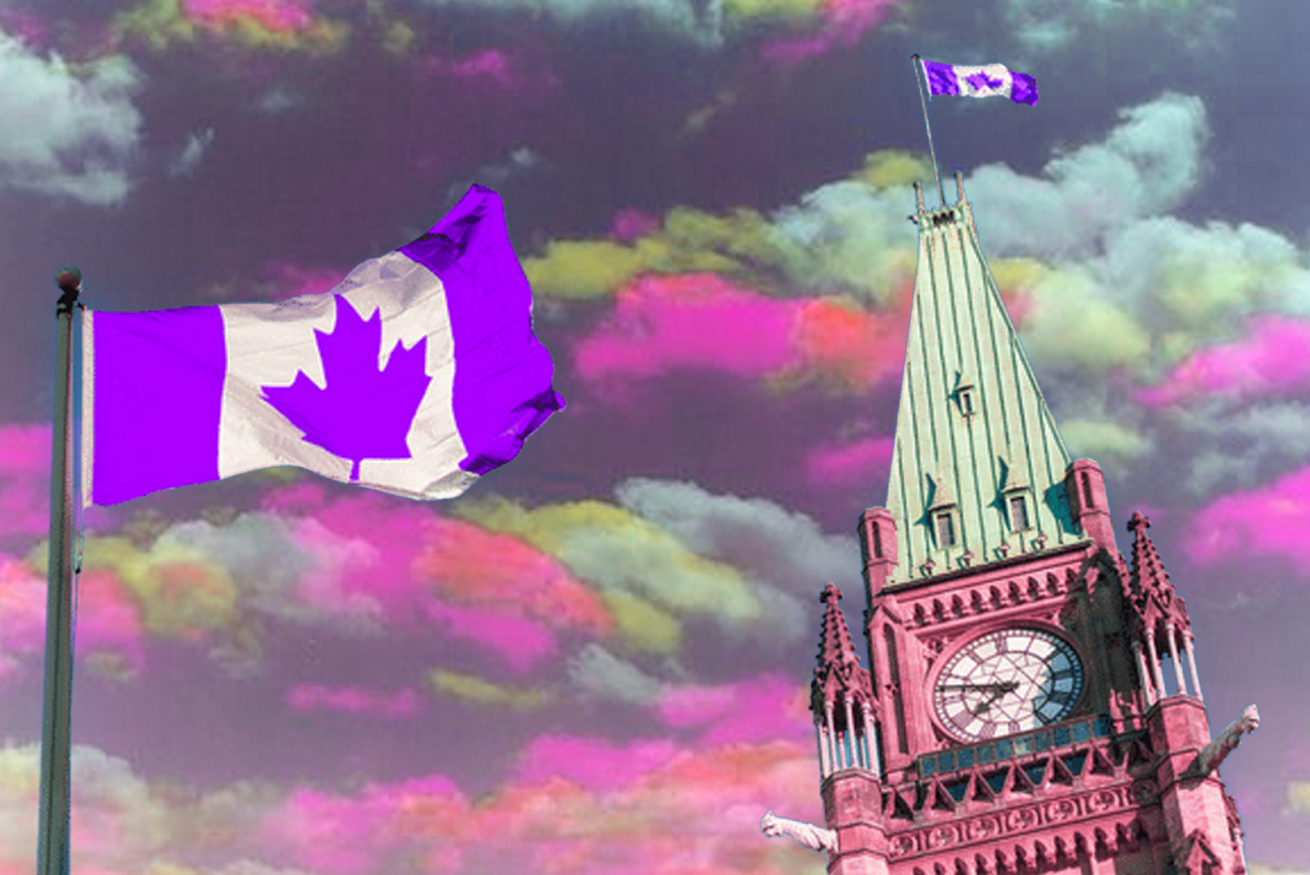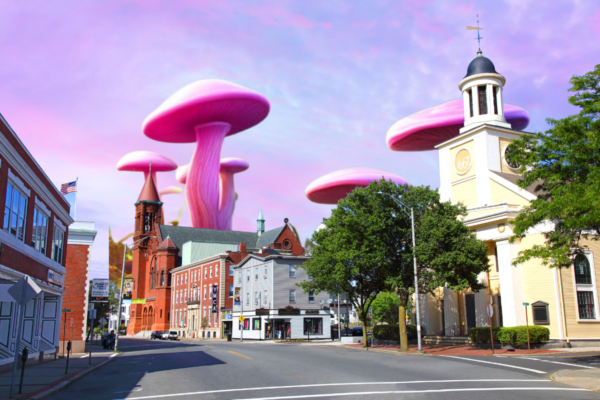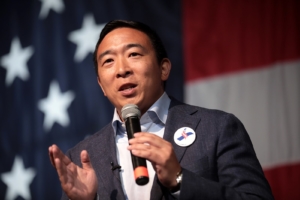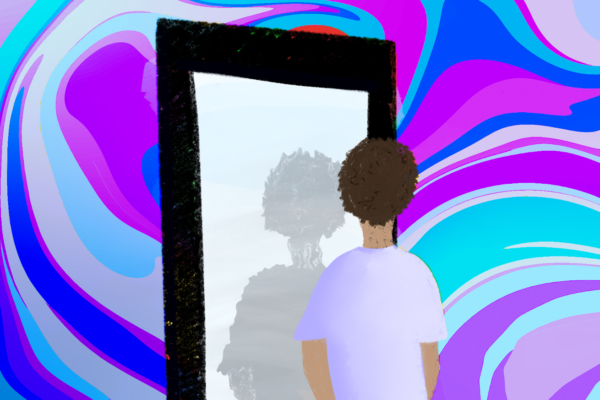
Could medical psilocybin-assisted therapy soon be legalized in Canada? If a lawsuit against the Government of Canada and the Minister of Health —claiming that barring patients from psilocybin and psilocybin therapy is unconstitutional— is successful, then the answer could be yes.
The lawsuit, supported by the non-profit TheraPsil on behalf of seven patients and one health care practitioner, argues that by denying patients access to psilocybin therapy, the government is violating Section 7 of the Canadian Charter of Rights and Freedoms, guaranteeing the right to life, liberty and security of the person.
Currently, there are three ways a patient in Canada can get access to psilocybin therapy. First, they can enroll in a clinical trial testing the treatment against specific maladies, such as treatment-resistant depression. Next, a person can get something called a Section 56 Exemption, by receiving personal permission from the Minister of Health. Finally, they can enter something called the Special Access Program, where you ask Health Canada for permission to try non-sanctioned medicines if current treatments have failed you.
Unfortunately, all three avenues have extremely limited access, meaning almost everyone who wishes to try psychedelic medicines is denied.
Given this extremely limited access —plus early clinical evidence that psychedelics can help some people with mental ailments like depression, anxiety, and addiction while being relatively non-addictive and safe— by denying patients access to this medicine, the lawsuit argues that the Canadian government is contravening the right to life, liberty and security of patients.
For us non-lawyers, who may not be sure how to interpret the likelihood of success of this trial, luckily there is a precedent in the Canadian courts that is almost identical.
In the year 2000, when marijuana was still heavily criminalized and not available even for medical purposes, Terry Parker, an epilepsy patient who found marijuana helped his symptoms, sued the government in an Ontario court. He said that by denying his right to use a medicine that helped him, the Canadian government was violating his Section 7 rights; the right to life, liberty and security of the person.
Sound familiar? Terry Parker won that case.
As a result of the court’s ruling, not only were personal charges against Parker for possession and trafficking thrown out, but an entirely new framework for medical marijuana was born. From that moment on, certain qualifying patients in Canada had access to medical marijuana.
In the court’s marijuana ruling, it was determined that “Liberty includes the right to make decisions of fundamental personal importance, including the choice of medication to alleviate the effects of an illness with life-threatening consequences.” Furthermore, “Deprivation of this right must also accord with the principles of fundamental justice. The choice of medication to alleviate the effects of an illness with life-threatening consequences is such a decision.”
The CEO of TheraPsil, Spencer Hawkswell, sees the striking similarities between the two court cases. “This is a near replica of Parker,” he told the National Post. “The outright prohibition of psilocybin is against our Charter and that was made evident with cannabis.”
In case he wasn’t clear enough, Hawkswell adds that “this is the landmark case that is going to legalize psychedelics in Canada.”
While nothing is certain in life —other than death, taxes and the Maple Leafs choking in the playoffs— it does seem at least probable that the court will follow the precedent set by Parker, and allow patients seeking psilocybin therapy to receive it.
Take one of the plaintiffs, Thomas Hartle, who was diagnosed with stage 4 colon cancer. Along with the cancer came existential dread that no medicine could help.
Or so he thought.
In 2020, Hartle was the first patient in Canada granted a year-long exemption from the Minister of Health, to undergo psilocybin therapy.
Talking with the National Post, Hartle said, “I have had anxiety for so long, I had sort of forgotten what it feels like to not have it… To experience the lack of anxiety I have had this week is beyond words. It’s amazing. I have no idea how long this particular benefit will last, but so long as it’s here, it’s really, really amazing and good.”
But then his one year ran up, and Hartle lost access to psilocybin therapy.
Like Terry Parker, Thomas Hartle received undeniable benefits from an illegal medicine. And like with marijuana in 2000, there is early evidence that psilocybin can be an effective medicine for many people. By denying Hartle, the six other patient plaintiffs in the case, and potentially hundreds of thousands of other Canadians, access to this medicine when we have zero evidence that the drug is addictive, or harmful to society in any way, seems to be a clear contravention of Canada’s Section 7 rights, given the Parker precedent.
If this court case is successful, and a framework for legalized medical psilocybin-assisted therapy is set up, it is likely only a matter of time before other psychedelics follow suit. Primary among them is MDMA, which has had even more positive results in clinical trials than psilocybin, attempting to treat conditions such as PTSD.
It is important to note that even if the court rules in favor of the eight plaintiffs, that may not necessarily be the end of the saga, as the ruling can be appealed all the way to the Supreme Court of Canada, a process that could take several years.
Speaking with Spencer Hawkswell, I asked him about the current state of the trial, and if there were any near-term catalysts coming. This is what he told me:
“TheraPsil has just received the Statement of Defense from the Crown. It’s been 30 days since the 8 plaintiffs filed the Charter challenge, where they have sought to challenge the Canadian drug laws that limit them from trying medical psilocybin. The Crown has responded by saying that they can not grant access to the patients, due to a number of reasons including insufficient clinical trials, worries of public safety and because of Canada’s obligations to the UN Conventions. These are all extremely weak arguments and while we are confident the case is a winner, it seems like the bureaucrats at Health Canada will want to fight this through.
Because many of the patients are terminally ill cancer patients, we are urgently seeking a meeting with Ministers Dr. Caroline Bennett and Jean-Yves Duclos to request that they grant Section 56 exemptions to the patients. If this is not done, it is likely that the patients will not be able to access psilocybin before their illnesses have progressed too far.”
Translation: The government is not backing down, and this case will be decided in court.
When asked what the consequences of a victory would be and if it would immediately legalize psilocybin therapy for anyone who gets a doctor’s note, Hawkswell explained:
“The consequences of victory would mean that the government would be forced to grant the plaintiffs access and would also need to come up with a permanent solution such as medical psilocybin regulations. The case we have put together is very comprehensive and would seek regulations much like Canada’s medical cannabis regulations. But for psilocybin.
We have already written these regulations which are consistent with our UN obligations: They are publically available and can be found on our website.
With a system like this, which is being asked for in this case, we might expect to have regulations in 6-12 months where patients can ask a doctor for access. Not a politician.”
As for the likelihood of a ruling in favor of the plaintiffs, Hawkswell says:
“I believe we have a win, I am very optimistic on the case and would say we have a 70-80% chance of success. However, like war, no one wins if there is a fight.
If the government wishes to fight tooth and nail, some of the plaintiffs and many other Canadians we are helping will die before they are granted access. This is a great sadness and the only people that can do anything for these patients are the honourable Ministers of Health, Jean-Yves Duclos and Dr. Carolyn Bennett, and Prime Minister Justin Trudeau.
We elect these politicians to serve Canadians and make hard and compassionate decisions when laws are out of order. We have made hundreds of requests to meet with these politicians but have so far not heard anything back.”
Finally, when asked if there is anything that regular Canadians can do to help TheraPsil and patients like Thomas Hartle win this case, Hawkswell says:
“Certainly. The case is a winner but only if the patient plaintiffs have money to pay for it. Donations are what is keeping the case alive and at the moment the patients are about $20k short of their goal. So anyone who cares can donate here: 100% of the funds raised pay for the case.
In addition, sharing and liking the posts on social media is a way to give this movement traction. If enough noise can be made, the Ministers of Health will need to respond.”
____________________________________________________________________________
While psychedelic therapy may currently be illegal in much of North America, it won’t always be. As the above case shows, courts could strike down laws banning psychedelic medicines. There are also jurisdictions, such as Oregon, which are legalizing psilocybin therapy.
Given this, prepare for your future, by becoming a Psychedelic Therapist. Sign up for the Third Wave Coaching Certification Program, which is now accepting applications for Spring 2023.
Change your life, and change the lives of others. Sign up today!





